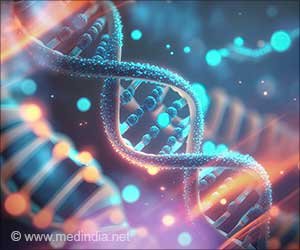Thank Your Genes If You Never Got Sick From COVID

Mild instances or asymptomatic infections have received little attention. Scientists focused on the sickest patients not only to save lives, but also because it is simpler to research individuals in a controlled setting like a hospital. It is an impossible task to collect
, sequence it, and then monitor healthy individuals in the community.
A team of researchers led by Jill Hollenbach of the University of California, San Francisco, devised a creative solution by tapping into a group of people who had previously handed up their DNA: bone marrow donors.
Advertisement
The researchers asked contributors to take part in the COVID-19 Citizen Science Study, an ongoing initiative at UCSF. Hollenbach’s team enlisted nearly 30,000 volunteers to download an app and fill out a questionnaire regarding their symptoms if they tested positive for the virus.
Although they’ve been collecting data from that cohort for years, Hollenbach adds that this study was confined to the time before patients were vaccinated so that the results could be easily understood.
They were hunting for changes in a collection of genes known as HLA (short for human leukocyte antigen) that carry the recipes for proteins that let our immune cells tell the difference between our own biological debris and unwanted intruders.
The proteins present viral fragments to our T-cells, which interpret this as an invitation to attack. T-cells have a long memory, so they swoop in quickly the next time a similar virus invades.
HLA-B*15:01: A Possible Explanation to Why People are Asymptomatic After COVID
The researchers discovered that people who possessed one copy of a gene variant known as HLA-B*15:01 were more than twice as likely to stay asymptomatic after contracting COVID. People who inherited two copies of the gene (one from each parent) were eight times more likely to be asymptomatic.
Hollenbach’s team discovered that this type of HLA is particularly good at recognizing common coronaviruses, and that T-cells exposed to it were afterwards very good at detecting critical portions of SARS-CoV-2. People with this version who simultaneously have a common cold, for example, “have this kind of superpower” of regulating their COVID infection to the point that they don’t have symptoms, she says (1✔ ✔Trusted Source
A common allele of HLA is associated with asymptomatic SARS-CoV-2 infection
Go to source).
“I think their findings are very exciting,” says Jean-Laurent Casanova, a Rockefeller University scientist who studies the relationship between our genes and susceptibility to infectious diseases. “It suggests that T-cells are involved in the early phase of SARS-CoV-2 infection, and that a strong T-cell response can blunt infection and prevent clinical manifestations.”
FOXP4: A Potential Culprit for Long COVID
Another research, which has yet to be peer reviewed, suggests genetic linkages to the opposite end of the spectrum: when patients experience lasting symptoms. Researchers compared around 6,500 people with a lengthy COVID diagnosis to almost one million people who did not.
People with a mutation in the FOXP4 gene were 1.6 times more likely to have long COVID. The same gene has also been linked to lung cancer and severe COVID.
While these studies assist to understand the virus’s vast spectrum of reactions, many questions remain unsolved. Why, for example, were some people not just asymptomatically afflicted but never infected? (2✔ ✔Trusted Source
Safety, tolerability and viral kinetics during SARS-CoV-2 human challenge in young adults
Go to source).
Casanova is interested in, say, that “health care worker without a mask in 2020 that has repeatedly tested negative, negative, negative. They’re seemingly resistant to infection and we think there’s a genetic basis for that.” His lab is currently analyzing some 2,000 genomes among that group to try to fish out the gene responsible.
Scientists would also like to know if there are genes implicated in other, more unusual cases, such as patients whose infections induce brain swelling or others who get a kind of heart inflammation known as myocarditis after receiving the mRNA vaccinations.
Understanding the genetic relationship to vulnerability, like all research, is just the beginning. There is still a lot of work to be done to figure out the remainder. Hollenbach’s results on asymptomatic COVID, for example, should stimulate greater research into alternative vaccination strategies.
All of the present vaccinations aim to prevent infection entirely, but there may be benefit in focusing on vaccines that make use of the memory T-cell response, which appears to work so effectively for those with the correct genetics.
“Maybe you get infected, but manage it so quickly and effectively that you don’t experience illness,” she says.
It is critical to continue uncovering these riddles. They inform us about improved strategies to combat this virus, which we know is here to stay, and they also contribute to a larger knowledge of how genes influence the immune response.
References :
- A common allele of HLA is associated with asymptomatic SARS-CoV-2 infection – (https://www.nature.com/articles/s41586-023-06331-x)
- Safety, tolerability and viral kinetics during SARS-CoV-2 human challenge in young adults – (https://pubmed.ncbi.nlm.nih.gov/35361992/)
Source: Medindia
Source link
#Genes #Sick #COVID



